
английский для бакалавров_copy
.pdf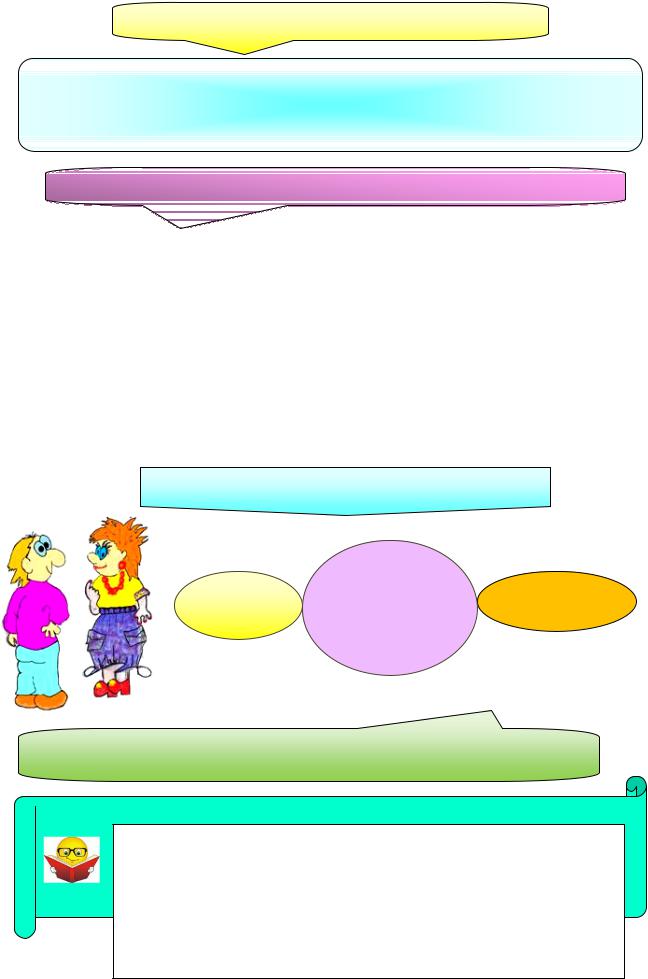
1. Find in the text English equivalents for the following:
Нобелевские премии • международная премия, присуждаемая за выдающиеся научные исследования • вклад в культуру или развитие общества • завещание Альфреда Нобеля • литература, физика, химия, физиология и медицина • содействие установлению мира во всём мире • номинация • лекция • банкет.
2. Choose the phrases on the right which complete the phrases on the left.
1. |
The Nobel Prizes are annual international |
a) |
the most prestigious award in its field. |
|
awards bestowed by Scandinavian committees |
|
|
2. |
In 1968 Sveriges Riksbank instituted an award |
b) |
the inventor of dynamite, established the prizes |
|
that is often associated with the Nobel Prizes, |
|
in 1895. |
3. |
The prizes in Physics, Chemistry, Physiology |
c) |
in recognition of cultural and scientific |
|
or Medicine, Literature, and Peace |
|
advances. |
4. |
The Peace Prize is awarded in Oslo, Norway, |
d) |
the Sveriges Riksbank Prize in Economic |
|
|
|
Sciences in Memory of Alfred Nobel. |
5. |
Each Nobel Prize is regarded as |
e) |
while the other prizes are awarded in Stockholm, |
|
|
|
Sweden. |
6. |
The will of the Swedish chemist Alfred Nobel, |
f) |
were first awarded in 1901. |
1. Test your grammar. Look at the sentences.
You |
can |
ask. |
must |
||
|
should |
|
|
have to |
|
2. Make the sentences negative. Make them into questions. Make them into the third person singular (He/she…). Which verb is different?
 Grammar tip
Grammar tip
Check
You use have to or must to talk about an obligation, although, when talking about responsibilities, have to is more common, e.g.
You have to lock this door every evening at 20.00.
The negative form don’t have to is used when you don’t have an obligation, e.g.
You don’t have to arrive before 9.00.
But you use the negative form mustn’t to talk about an obligation not to do something, e.g.
You mustn’t speak during working hours.
For more on these grammar points, turn to ‘Grammar Reference’.
21
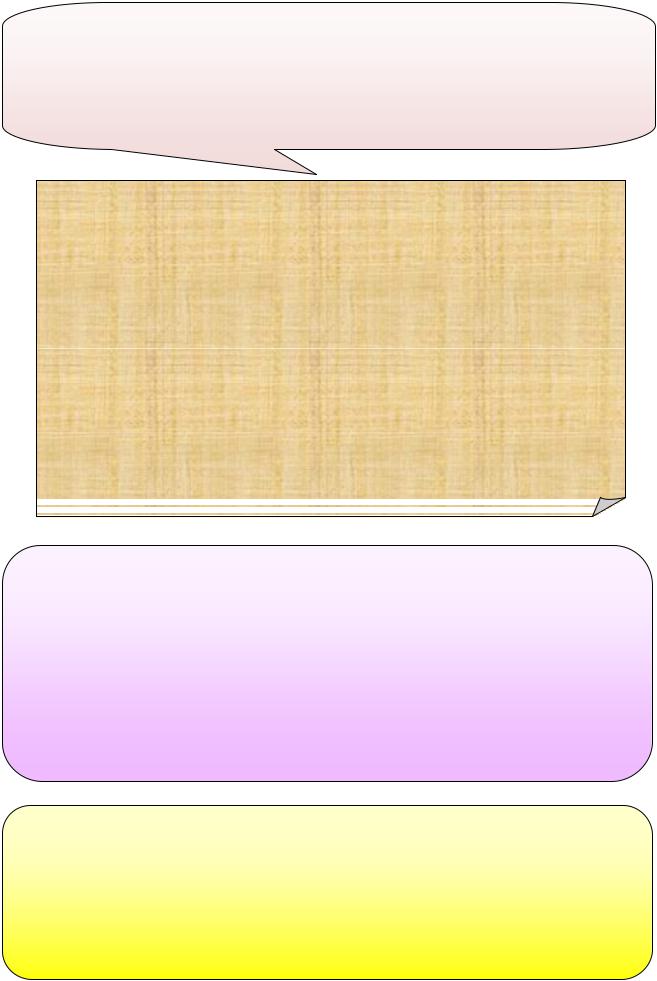
3. Read and translate the information below in writing. Try to exchange some verbs into modal verbs where it possible.
On November 27, 1895, in Paris, Alfred Bernhard Nobel signed his will. After his death in December 1896, many people tensely awaited the publication of the contents of the will, since it was widely known that Nobel had left one of the world's largest private fortunes. To the great disappointment of some of his relatives and friends, he declared the following last will:
The whole of my remaining realizable estate shall (must) be dealt with in the following way: the capital, invested in safe securities by my executors, shall constitute a fund, the interest on which shall be annually distributed in the form of prizes to those who, during the preceding year, shall have conferred the greatest benefit on mankind. The said interest shall be divided into five equal parts, which shall be apportioned as follows: one part to the person who shall have made the most important discovery or invention within the field of physics; one part to the person who shall have made the most important chemical discovery or improvement; one part to the person who shall have made the most important discovery within the domain of physiology or medicine; one part to the person who shall have produced in the field of literature the most outstanding work in an ideal direction; and one part to the person who shall have done the most or the best work for fraternity between nations, for the abolition or reduction of standing armies and for the holding and promotion of peace congresses. The prizes for physics and chemistry shall be awarded by the Swedish Academy of Sciences; that for physiological or medical work by the Caroline Institute in Stockholm; that for literature by the Academy in Stockholm, and that for champions of peace by a committee of five persons to be elected by the Norwegian Storting. It is my express wish that in awarding the prizes no consideration whatever shall be given to the nationality of the candidates, but that the most worthy shall receive the prize, whether he be a Scandinavian or not.
Some of the relatives sought to have the will declared invalid, and to begin with they had the support of King Oscar II, who held that family claims could not be set aside on the grounds of the aging Alfred Nobel's fanciful ideas. There were moreover many among Sweden's conservatives who hoped to see the realisation of the will prevented because it was "unpatriotic" – the prizes ought to have been reserved for Swedes. But following long and difficult negotiations, in which the Swedish Government was also involved, the executors Ragnar Sohlman and Rudolf Lilljequist finally succeeded in untangling the legal knots. On June 29, 1900, King Oscar II approved the statutes of the newly established Nobel Foundation. That meant that Alfred Nobel's grand vision could finally come to fruition. On December 10, 1901, the first Nobel Prizes were awarded in Stockholm and Oslo.
4. What would you do with your money if you were Alfred Bernhard Nobel? Make up your will, using the given information.
The Nobel Prize is awarded for outstanding contributions in Physics, Chemistry, Literature, Peace, and Physiology or Medicine. The Nobel Prize in Physics has been awarded 104 times to 189 Nobel Laureates between 1901 and 2010. John Bardeen is the only Nobel Laureate who has been awarded the Nobel Prize in Physics twice, in 1956 and 1972. This means that a total of 188 individuals have received the Nobel Prize in Physics.
5. Make up a list of people who have won the Nobel Prize for Physics. Check your answers in http://www.google.ru/#sclient=psy&hl=ru&newwindow=1&source=hp&q=the+nobel+prize+wikipedia&aq= 8&aqi=g10&aql=&oq=&pbx=1&psj=1&fp=9ff7f26ea45dbfb3&biw=700&bih=608
22
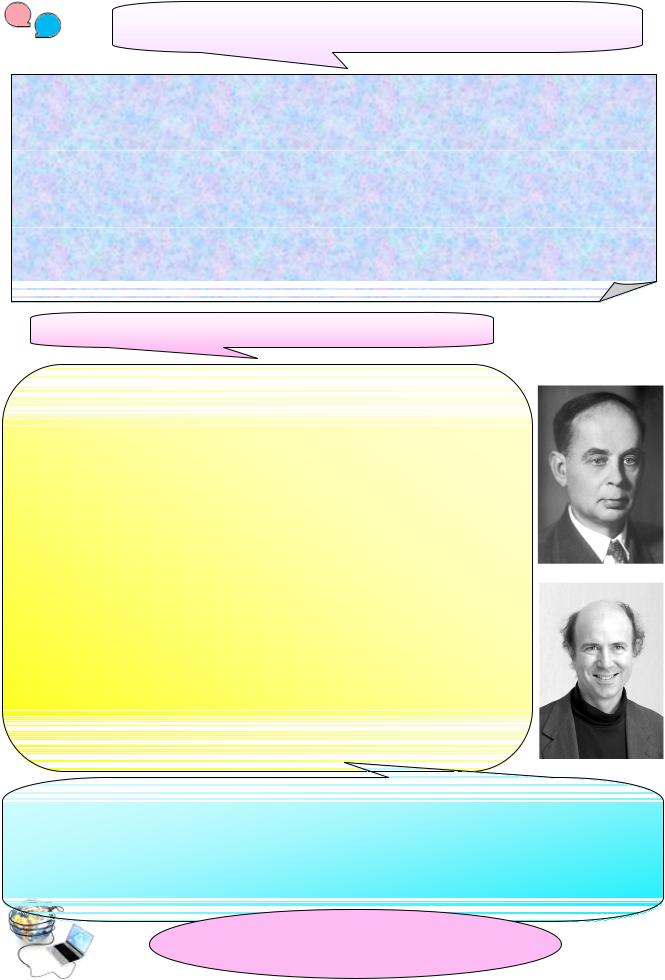
6. Read the text ‘Multiple laureates’ and translate it. Why do you think so few women have won the Nobel Prize?
Multiple laureates. Four people have received two Nobel Prizes. Maria Skłodowska-Curie received the Physics Prize in 1903 for the discovery of radioactivity and the Chemistry Prize in 1911 for the isolation of pure radium. Linus Pauling won the 1954 Chemistry Prize for his research into the chemical bond and its application to the structure of complex substances. Pauling also won the Peace Prize in 1962 for his anti-nuclear activism, making him the only laureate of two unshared prizes. John Bardeen received the Physics Prize twice: in 1956 for the invention of the transistor and in 1972 for the theory of superconductivity. Frederick Sanger received the prize twice in Chemistry: in 1958 for determining the structure of the insulin molecule and in 1980 for inventing a method of determining base sequences in DNA. Two organisations have received the Peace Prize multiple times. The International Committee of the Red Cross received it three times: in 1917 and 1944 for its work during the world wars; and in 1963 during the year of its centenary. The United Nations High Commissioner for Refugees has won the Peace Prize twice for assisting refugees: in 1954 and 1981.
7. Read and translate the biography of a famous scientist.
Il'ja Mikhailovich Frank. Prize motivation: "for the discovery and the interpretation of the Cherenkov effect".
Il'ja Mikhailovich Frank was born in Leningrad on October 23, 1908, the younger son of Mikhail Lyudvigovic Frank, a Professor of Mathematics, and his wife, Dr. Yelizaveta Mikhailovna Gratsianova. He attended the Moscow State University as a pupil of Vavilov, and graduated in 1930. In 1931 he became a senior scientific officer in Professor A.N. Terenin's laboratory in the State Optical Institute in Leningrad, and in 1934 he joined the P.N. Lebedev Institute of Physics of the U.S.S.R. Academy of Sciences as a scientific officer. He was promoted firstly to senior scientific officer and, in 1941, to his present position as officer in charge of the Atomic Nucleus Laboratory. Since 1957 he has simultaneously occupied the post of Director of the Neutron Laboratory of the Joint Institute of Nuclear Investigations. The first investigations of I.M. Frank were in the field of photoluminescence and in photochemistry. From 1934 he began his work on nuclear physics in the Laboratory of Professor D.V. Skobeltzyn. The experimental investigations of pair creation by g-rays and other problems connected with the measurements and application of g-rays were carried out by him. His further works were devoted to neutron physics, the investigation of reactions on light nuclei and nuclear fission by mesons. The subject of his theoretical investigations is the Vavilov-Cerenkov effect and related problems. Frank was awarded the degree of Doctor of Physico-Mathematical Sciences in 1935; in 1944 he was confirmed in the academic rank of Professor, and was elected a Corresponding Member of the U.S.S.R. Academy of Sciences in 1946. He married Ella Abramovna Beilikhis, a noted historian, in 1937. Their only child, Alexander, is also a physicist employed at the Dubna neutron research center.
Nobel Prize-winning physicist Frank Wilczek (the Nobel Prize in Physics 2004)
explains the Large Hadron Collider, how it works, and what scientists hope to discover with it. Visit the website http://www.youtube.com/watch?v=mPEGwrdhvA0
8. In small groups imagine you are interviewing Mr.W.Frank. Make up a list of questions to ask him about his family, study and work to write his biography as an example above.
1.What field of science do you work in?
2.Did you work alone?
3.How long have you been …?
23
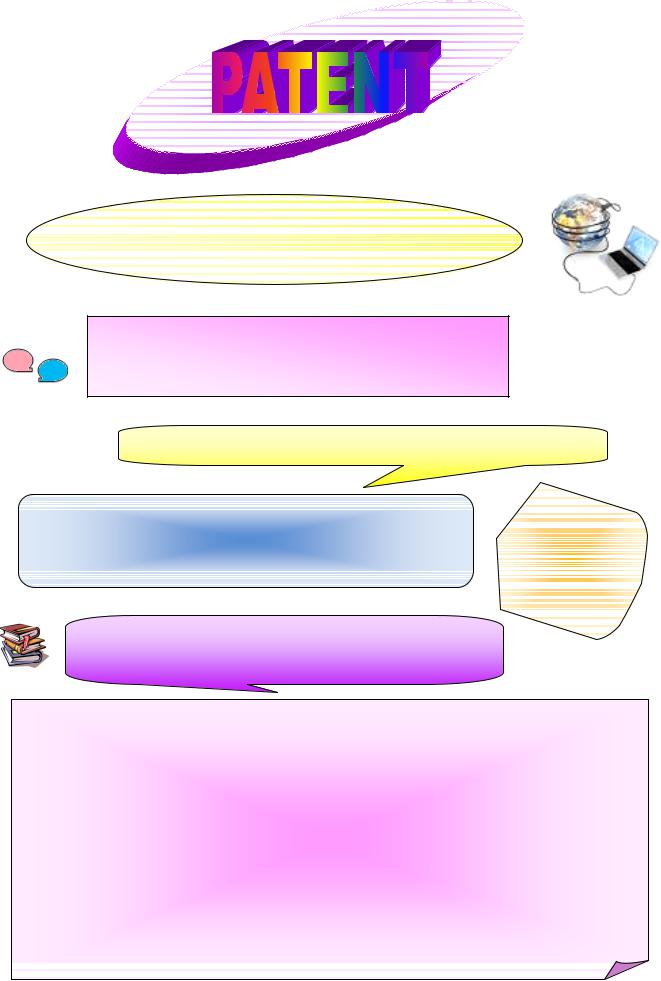
Lesson 3
1. Warm-up. Visit the website http://www.youtube.com/watch?v=ZutTveKoE0E.
In pairs or small groups discuss the questions:
1.How do you define the term ‘Patent’?
2.Would you like to be a patentee?
3.If you were an inventor where would you apply to be granted?
4.Can you list the items to become a patentee?
2.a. Can you guess the meaning of these international words?
Patent • grant • limit • period • public • procedure • exclusive • national • international • typically • industrial • subject • business
• methods • mental • act • prevent • organization • aspect • technology • protection • minimum.
3. Read and translate the following text into Russian.
Get ready to retell the text.
b. Make up sentences of your own with the words above.
A patent1 is exclusive rights granted by a state to an inventor or their assignee2 for a limited period of time in exchange for a public disclosure3 of an invention.
The procedure4 for granting5 patents, the requirements placed on the patentee, and the extent of the exclusive rights vary widely between countries according to national laws and international agreements. Typically, however, a patent application must include one or more claims6 defining the invention which must be new, non-obvious, and useful or industrially applicable7. In many countries certain subject areas are excluded from patents, such as business methods and mental8 acts. The exclusive right granted to a patentee in most countries is the right to prevent others from making, using, selling, or distributing the patented invention without permission. It is just a right to prevent others' use. A patent does not give the proprietor of the patent the right to use the patented invention, should it fall within the scope9 of an earlier patent.
Under the World Trade Organization's (WTO) Agreement on Trade-Related Aspects of Intellectual Property Rights, patents should be available in WTO member states for any inventions, in all fields of technology, and the term of protection available should be the minimum twenty years. Different types of patents may have varying patent terms (i.e. durations10).
24

1.Patent (/pætənt/ or / pe tənt/) (n) – патент.
‘The Federal Service for Intellectual Property, Patents and Trademarks’ – ‘Rospatent’ – Федеральное государственное учреждение по интеллектуальной собственности, патентам и товарным знакам – Роспатент.
2.Assignee (n) – уполномоченный, правопреемник, цессионарий.
Last year this company became an assignee of patent. – В прошлом году эта компания стала правопреемником патентовладельца.
3.Disclosure (n) – открытие, обнаружение, сообщение.
MPs called for public disclosure of the committee's findings. – Члены парламента потребовали оглашения результатов работы комиссии.
4.Procedure (n) – процедура, порядок осуществления действия.
You can't just do it however you like – you must follow procedure. – Ты не можешь просто делать это,
как тебе захочется, ты должен следовать установленной процедуре.
5.To grant (v) – оказывать материальную поддержку; target grant – целевая программа помощи. We received a grant to attend the conference. – Мы получили стипендию для участия в конференции.
6.Claim(s) (n) – патентная формула; claim (v) – возбуждать иск о возмещении убытков.
You should claim against the car insurance. – Ты должен подать иск против компании, страхующей автомобили.
7.Applicable (adj) – применимый.
This is the rule applicable to both verbs and nouns. – Это правило, применяющееся как к глаголам, так и к существительным.
8.Mental (adj.) – интеллектуальный, умственный;
Syn.: intellectual – внутренний (происходящий в сознании), inner.
His physical and mental health had got worse. – Его физическое и душевное здоровье ухудшилось.
9.Scope (n) – границы, рамки, пределы.
Responsibility for office services is not within the scope of the department. – Ответственность за работу офисных служб не входит в компетенцию данного отдела.
10. Durations (n) – продолжительность, срок действия (договора); Syn.: continuance, endurance.
Macaulay duration is measured in years. – Срок погашения облигаций измеряется в годах.
1.Who grants exclusive rights to an inventor? 2. How do you define the term ‘assignee’?
3.Does the patent have unlimited period of time? 4. Is there the procedure for granting patents? 5. Who is the patentee? 6. What kind of features should the invention have? 7. What is the exclusive right granted to a patentee in most countries?
25

1. Find in the text English equivalent for the following:
Исключительное право • грант • процедура получения права собственности на изобретение • требования, возложенные на патентодержателя • международные соглашения • цессионарий • ограниченный период времени • промышленно применимая форма заявления на патент • утверждения, определяющие изобретение • предотвращать использование патента другими лицами • собственник патента • Всемирная торговая организация.
2. Spell and transcribe the fore forms of the following verbs.
To have • to grant • to change • to invent • to vary • to include • to be • to exclude • to prevent • to make • to use • to sell • to distribute • to do • to give • to fall • to have.
Oh, no, it isn’t so. • I don’t think it is right. • No, it’s just wrong. • Not at all.
3. Say if the sentences below are true or false. If they are not true, correct them. Don’t forget to start your answer with one of these phrases:
1. |
A patent is exclusive rights granted by a state. |
True |
False |
|
|
|
|
2. |
The procedure for granting patents, the requirements placed on the patentee. |
|
|
|
|
|
|
3. |
The procedure for granting patents, the requirements placed on the patentee, |
|
|
|
and the extent of the exclusive rights are identical for all countries. |
|
|
|
|
|
|
4. |
The invention mustn’t be new, non-obvious, and useful or industrially |
|
|
|
applicable. |
|
|
|
|
|
|
5. |
In many countries, certain subject areas are included in patents, business |
|
|
|
methods and mental acts. |
|
|
|
|
|
|
6. |
The exclusive right granted to a patentee is the right to prevent others from |
|
|
|
making, using, selling, or distributing the patented invention without |
|
|
|
permission. |
|
|
|
|
|
|
7. |
Different types of patents may have varying patent terms. |
|
|
|
|
|
|
26

1. Match the correct word with each definition.
А. Mental |
1) |
a government grant to an inventor assuring him the |
|||||
|
sole right to make, use, and sell his invention for a |
||||||
В. To grant |
|
|
|
|
|
limited period; |
|
|
|
|
|||||
С. Assignee |
|
|
|
|
|
2) |
a person to whom some right, interest, or property is |
D. Patent |
|
|
|
|
|
transferred; |
|
|
|
|
|
|
3) |
to consent to perform or fulfill; |
|
|
|
|
|
|
4) |
of or involving the mind or an intellectual process. |
|
2. Make up four sentences of your own with the phrases above.
3. Choose the phrases on the right which complete the phrases on the left.
1. |
A patent is exclusive rights granted by a |
a) |
vary widely between countries according to |
|
state to an inventor |
|
national laws and international agreements. |
|
|
|
|
2. |
In many countries, certain subject areas are |
b) |
which must be new, non-obvious, and useful |
|
excluded from patents, |
|
or industrially applicable. |
3. |
It is just a right |
c) |
varying patent terms. |
|
|
|
|
4. |
Typically, however, a patent application |
d) |
or their assignee for a limited period of time |
|
must include one or more claims defining |
|
in exchange for a public disclosure of an |
|
the invention |
|
invention. |
|
|
|
|
5. |
The procedure for granting patents, the |
e) |
such as business methods and mental acts. |
|
requirements placed on the patentee, and the |
|
|
|
extent of the exclusive rights |
|
|
|
|
|
|
6. |
Different types of patents may have |
f) |
to prevent others' use. |
|
|
|
|
 Have you ever …?
Have you ever …?
1.a. Have you ever been to St. Petersburg?
b.Have you been to St. Petersburg last week?
2.a. Have you seen Ann yesterday?
b.Did you see Ann yesterday?
3.a. I am here for half an hour.
b.I have been here for half an hour.
1. Look at these pairs of sentences.
In each pair put a line through the sentence which is not grammatically correct.
27

Grammar tip |
Check |
|
Notice that when you are talking about a period of time from the past up |
|
to the present, you use the Present Perfect. |
Have you done your project yet?
When you are talking about a finished action at a definite time in the past, you use the Past Simple.
When did you do your project?
For more on this, turn to ‘Grammar Reference’.
2. Read & translate the text ‘History of patent’. Make a presentation of any invention of that time with your commentaries in Present Perfect.
History of patent
In 500 BC, in the Greek city of Sybaris (located in what is now southern Italy), "encouragement was held out to all who should discover any new refinement in luxury, the profits arising from which were secured to the inventor by patent for the space of a year".
The Florentine architect Filippo Brunelleschi received a three-year patent for a barge with hoisting gear, that carried marble along the Arno River in 1421. In 1449 King Henry VI granted the first patent with a license of 20 years to John of Utynam for introducing the making of colored glass to England.
Patents in the modern sense originated in 1474, when the Republic of Venice enacted a decree that new and inventive devices, once put into practice, had to be communicated to the Republic to obtain the right to prevent others from using them.
3. A film studio is going to make a film about the latest inventions.
You are invited to the studio as an expert to decide what invention should be included in the film. You are supposed to speak about one invention only.
Year 2010 has become our celebrations to celebrate the advancement in the fields of beauty, entertainment, cooking and many other electronics. Life will be great and easy after that.
http://www.youtube.com/watch?v=_pLjGqYauek
Insect Shield Travel Chair
Travel Chair has partnered with Insect Shield, the leader in invisible and odorless protection against potentially dangerous insects that can cause West Nile Virus, Lyme Disease and Malaria.
The new Insect Shield Travel Chair helps in protecting from annoying and pesky little bugs, while also reducing the need for application of bug repellant. Appropriate for use by children of any age and women who are pregnant or nursing, this chair is perfect for sitting around the campfire or for a day out fishing.
28
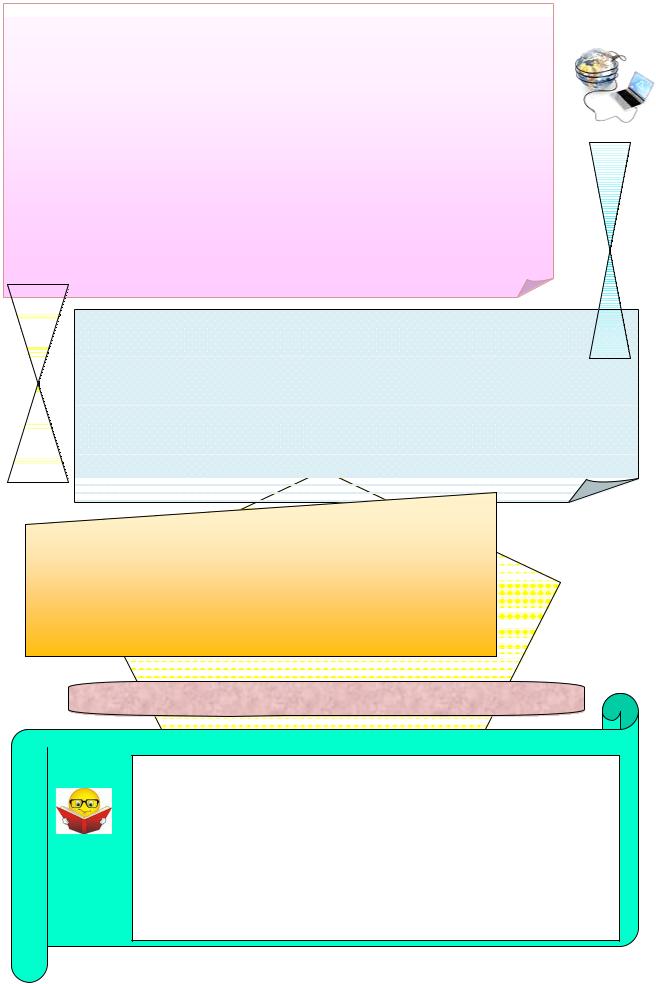
http://asia.cnet.com/videos/cnet-challenge-will-a-scooter-luggage-hybrid-save-you-time-at-the-airport- 45370488.htm
Have you ever heard about luggage bag as a mini scooter?
Dragging your luggage around with you is a mundane and painful task, especially on the way back from an action-packed, or relaxing holiday. Well now you have stopped pulling around your luggage and wheeling it back home, thanks to this new invention. The Samsonite luggage bag has also been invented as a mini scooter, allowing you to scoot around with your luggage safely tucked away.
Just think about when everyone else is carrying around their luggage, whilst you just jump on your scooter and fly by them, shortening your trip back home, and also making it a little more fun! It's a simple idea, but an extremely effective product, which we think will prove immensely popular, so look out in airports near you for scooters flying past you from all directions.
The scooter also folds up, allowing you to use it as a normal luggage carrier, but why minimise the fun?! The bag itself is rather small, so you may very well be able to use this for your on-board luggage bag.
http://www.useddishwasherparts.com/videos-lg-steam-dishwasher-%5BSC_IPaoHBSI%5D.cfm
Steam Dishwasher
Every one of you might be running different cycles for your delicate glass dishes to avoid chipping and for those crusty pots and pans which require a powerful cleaning. Also you would be running a full wash cycle for your stored and less used dusty dishes. This new LG dishwasher is the only one in its type that allows you to select different water sprays settings for top and the bottom racks. Their short steam-powered freshening cycle allows you to have a quick and gentle cleansing of dust from your china dish wares.
1.Which of these has had the biggest influence on our daily lives?
2.How has it changed our lives?
3.Which of these has had the biggest effect on business?
4.What other recent inventions have changed your life?
5.What was life like before these products?
4. Try to state the functions of the "–ing" form in the texts above.
 Grammar tip
Grammar tip
Check
The -ing form can be used like a noun, like an adjective or like a verb.
Smoking is forbidden. • I have a long working day. • I don't like dancing.
Notice that when 'to' is used as a preposition, it is followed by the -ing form.
I don't object to working this Sunday. • I'm looking forward to seeing him again.
• I'm used to working long hours.
There are many verb + -ing combinations. Here are some common ones:
I admit telling her. • I appreciate having the raise. • I avoid speaking to him.
For more on this, turn to ‘Grammar Reference’.
29
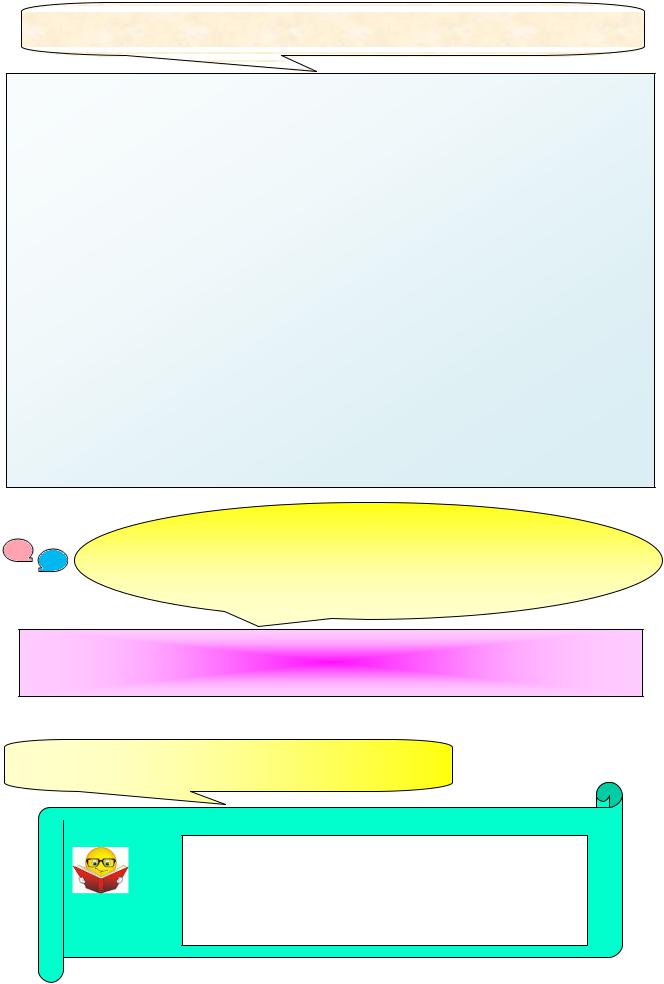
5. Read the following information about The Federal Service for Intellectual Property, Patents and Trademarks and translate into Russian in writing.
The Federal Service for Intellectual Property, Patents and Trademarks is a Federal executive authority performing functions of control and supervision in the area of the legal protection and exploitation of intellectual property rights, including patents and trademarks.
The Federal Service for Intellectual Property, Patents and Trademarks is under the Ministry of Education and Science of the Russian Federation.
The main functions of the Federal Service for Intellectual Property, Patents and Trademarks are as follows:
1)the provision of the procedure for affording in the Russian Federation the legal protection to intellectual property rights and also the procedure for their exploitation, said procedures are established by the Constitution of the Russian Federation, the Federal constitutional laws, the Federal laws and other statutory legal acts;
2)the performance of control and supervision of examination of applications for intellectual property rights and the issue of protective titles in the manner established by legislation of the Russian Federation;
3)the registration of intellectual property rights and also license agreements and assignment agreements in the sphere of intellectual property and publication of data on the registered intellectual property rights;
4)the performance of control and supervision of the observance of the procedure for paying patent fees and registration charges;
5)the performance of certification and registration of patent attorneys of the Russian Federation and the performance of control of the fulfillment by them of requirements provided for by legislation of the Russian Federation.
6. In small groups imagine you are interviewing a member of The Federal Service for Intellectual Property, Patents and Trademarks. Make a list of questions to ask him (her).
1.What does the Federal Service for Intellectual Property, Patents and Trademarks respond for?
2._____________________________________________
7. Act out the conversation with a partner. Rewrite all your questions using indirect language.
 Grammar tip
Grammar tip
Check
When we ask for information, we often say ‘Do you know…?’ / ‘Could you tell me…?’ etc. If you begin a question like this, the word order is different from a simple question.
‘Where has Ann gone?’ → Do you know where Ann has gone?
For more on this, turn to ‘Grammar Reference’.
30
